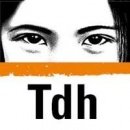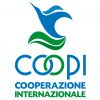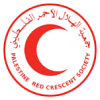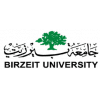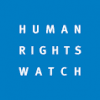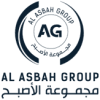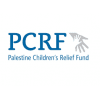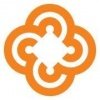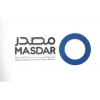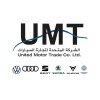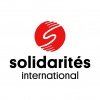Roll out of training sessions on GBV legal protection system...
Tender Description
TERMS OF REFERENCE – CONSULTANCY
Roll out of training sessions on GBV legal protection system for women and girls directed to community leaders and formal justice actors in the West Bank (Palestine)
Terre des hommes (Tdh) is a leading Swiss child-relief agency with a strong mandate worldwide on restorative juvenile justice, which accumulates over 40 years of experience in the Palestinian context. Tdh is a well-recognized actor in Palestine with a long and fruitful collaboration vis a vis justice stakeholders and national institutions on the policy, capacity building and specialized service provision components, chiefly. The Access to Justice Program (A2J) has been implemented in Palestine since 2010 including a specific and unique component focused on gender justice in formal and community-based/informal spheres, as some of access to justice projects have been implemented on collaboration with local specialized partners such as Woman’s Affairs Technical Committee (WATC).
Women’s Affair Technical Committee (WATAC) is a Palestinian feminist organization established in 1992 as a coalition of women’s grassroots committees, striving for the social, political and economic empowerment of women to achieve a democratic Palestinian society that ensures plurality, social justice and equality between men and women. WATC is a specialized actor in country in Gender Based Violence Programmes and it has been playing a crucial role at the legislative arena to enhance protective regulations for women and girls.
Currently, WATC and Tdh are partners in implementing the UN trust fund to end violence against women and girls project : “Gender Justice to End Violence Against Women and Girls” (VAWG) where this consultancy is framed with. Overall, the project aims in activating a responsive gender justice to address VAWG proposing a promising pilot to generate evidence-based innovative and replicable approaches. It entails a holistic conception of access to justice for women and girls (demand side: promoting female’s agency in justice; and supply side: tackling both formal and informal justice systems). The above scheme is expected to lead to a gradual increase of fair ruling for VAWG’s cases, increased reporting of cases, higher female participation including in policy development and social openness and support for gender justice issues pertaining to VAWG.
In Palestine, women and girls experience multiple layers of violence and discrimination and they have to face oppression conditions on two fronts: first that they live under the Israeli occupation, second that they live within a society governed by patriarchal norms and attitudes. This implies the establishment of a generalized concept of gender inferiority that develops from early stages of life and solidifies through the social constructs and stereotypes that perpetuate the cycle of violence, their participation in the spheres of public life and decision-making in private life. Ultimately, this severely limits the exercise of women’s and girls’ rights. VAWG is a socio-culturally rooted problem exacerbated by the footprint of the prolonged conflict, the impact on community/family structures and the difficulty of access to services, and deeply particular when tackling A2J for women and girls’ survivors of violence
The combination of decades of Israeli occupation and the prevailing patriarchal culture in Palestinian society, configures a very high gender inequality, which limits within the domestic ambit the expected roles for women. The traditional social situation , is complemented here with the violence and aggression from long established military occupation which has caused a long economic depression, characterized by a lack of opportunities and the added pressures from a permanent humanitarian crises. It has contributed to a behavioral dynamic of men being more frustrated, unable to fulfil their expected role in this patriarchal society, as their opportunities to provide and protect (two main elements of masculinity in a traditional patriarchal society), have been very limited. The existence of a wide social agreement to maintain traditional family systems, as a way to reinforce needed unity and resilience in face of occupation, have eroded the development of gender policies that otherwise would have long ago found its place in the Palestine Basic Law.
The project’s rationale works comprehensively and complementarily on both sides of justice as explained above: the supply and the demand. Particularly, to reinforces the application of justice standards within the formal and informal justice structures relevant to VAWG cases, changing entrenched negative attitudes and promoting pro-gender community and local justice norms.
The aim is to collaboratively work with the formal actors that have higher relevance to the protection of women and girls in their communities and favorable ruling for VAWG cases , and with the informal/customary justice system in country (c, involving traditional, religious leaders and community activists who administer VAWG cases in their communities, to ensure fair access to justice for VAWG cases by applying the justice principles within the formal and informal justice system.
The objective of this consultancy contract is to draw a training material (package) on GBV legal protection system for woman and girls and on the justice standards within the formal and informal system. The base for the training package will be from Tdh’s existing documents that have been developed through this project; the Procedural Guidelines on ‘Access to Justice Standards for Cases of Violence Against Women and Girls’ and the capacity building toolkit for informal female justice actors on gender-responsiveness, survivor-centered approach, and accountable prevention and response justice. The training aims to enable community actors and informal justice actors to identify the most appropriate traditional and community based protection approach to solving VAWG cases as a key issue of community conflict resolution and encourage community leaders to shift their support towards women and girls, which will progressively help recognizing the role of women as important justice actors in t solving VAWG disputes, so they can work in cooperation with each other in a more progressive and efficient manner.
The scope of work and expected deliverables are the following:
- Review of Tdh’s Procedural Guideline of Access to Justice Standards for Cases of Violence Against Women and Girls and the capacity building toolkit for informal female justice actors on gender-responsiveness, survivor-centered approach, and accountable prevention and response justice and draw from these resources , and draw the training materials (package) from the above mentioned procedural guideline and toolkit and tailor it for building the capacity of the community actors and influencers, the already existing Female Informal Female Justice actors, the Traditional leadership committees within the governor offices and a number of relevant civil society organizations.
- Prepare a needs assessment form to be filled by the trainees prior to the training in English and Arabic and share with Tdh for approval,
- Prepare inception report in English and share it with Tdh for their review and approval. The inception report should include the work plan along together with the timeframe, the preparation work done, the analysis of the needs assessment, and recommendation for the next phase if any
- Develop the training outline in English and share with Tdh for approval.
- Prepare specific, detailed and practical training material such as power point, exercises, case studies..etc that are extracted from the guideline and the capacity building toolkit and share it with TDH for approval.
- Conduct training sessions as follows:
Group One:
- Train Traditional leadership committees within the governor offices in Bethlehem, Jenin, Ramallah and Tulkarem, in addition to a number of community influencers, activists and representatives from civil society organizations who work with GBV survivors. The joint training will facilitate better networking and future cooperation among the participants. Tdh will target three separate group of trainees in each governorate. Each group will consists of around 16 participants.
- Each group will receive three face to face training sessions while taking COVID 19 precaution measures in to consideration
- In total 50 participants will be targeted in 9 training sessions and 6 follow up coordination meeting.
Group Two:
- Train the Informal justice actors networks ( that have been established through the project) and a number of relevant civil society organizations active in the field of GBV, and the gender unit within the governor offices.
- Tdhwill have three separate groups of trainees in Bethlehem, Tulkarem and Jenin.
- Each group will consist of 15 trainers and will receive 3 face to face training days on the procedural guidelines.
- So, in total 45 female trainees will be targeted in 9 training session and 6 follow up meetings.
- After the completion of the training, each group will receive two coordination and follow up meetings with the Informal Female Justice Actors to introduce them to each other, identity roles and responsibilities and agree on how they will develop a community safety plans which aims to address the issue of women and girls access to justice and propose community based mechanisms to support women and girls to claim their rights and raise the awareness of the communities regarding women’s and girl’s rights and enhance community based protection structures . So its expected from consultant/s to facilitate the discussion among the different groups and support in setting up the general frame work of these safety plans
7. Final report in Arabic and English including methodology, pre and post test analysis, training materials, and final evaluation.
8. The consultant is expected to use own computer and other equipment required for the task.
The consultant will strictly follow the work plan and the time schedule agreed with Tdh and WATC in undertaking the consultancy assignment.
An appropriate methodology will have to be determined by the consultant and submitted with the consultancy technical proposal. It will be reviewed by Tdh and WATC and adjusted accordingly with the consultant if needed prior to the signature of the consultancy contract.
The duration of the consultancy contract shall be for a maximum of 30 working days, starting May 15th. Final deliverable shall be submitted (in Arabic and English, after proofreading) on the 30th of June 2021 at the latest.
- A post-graduate or equivalent qualification/degree in Law, Gender and Law, Criminology, Human rights, Political Science, Development Studies, Humanities or any other relevant discipline. Excellency level of expertise would be prioritized.
- At least 6-9 years of prior work experience in dealing with justice (including informal/customary) and gender issues in the national context (Palestine).
- Proven sound experience on drafting similar deliverables.
- Excellent written and speaking skills in English and in Arabic. Consultancy team can be comprised by international and/or nationals, provided that the excellency in both languages can be demonstrated by the individual or the team proposed.
- Demonstrated (providing concrete examples and when possible excerpts/samples) experiences and skills in preparation of training materials.
Consultants/firms that meet the requirements should submit expression of interest, which should include the following:
- Cover letter including the consultant’s/firm’s suitability for the assignment and current contact information
- Include 1-2 samples of previous similar work
- CVs of consultants
- Technical offer; detailed response to TOR, with specific focus addressing the purpose and objectives of the assignment, and methodology to be used (max. 5 pages)
- Financial offer; detailed budget breakdown based on expected daily rates and initial work plan
- Initial draft of the proposed work plan Prerequisites for accepting financial offers:
- Prices are inclusive of value added tax for establishments officially registered with the Ministry of Finance; while for individuals and non-profit institutions, the offered prices will be subject to a 10% deduction for income tax.
- Applicants must submit a valid reduction from source certificate along with the offer.
- Prices are to be submitted in US dollar and are valid for 30 days starting from the applications’ closing date.
- The quotation must be detailed and based on the work mechanism proposed by the consultant.
- The transportation to training venues will be covered by Tdh
All offers must be e-mailed to [email protected] no later than May 18th, 2021 at 16:00 PM(Palestine time).
Only proposals in English and that include all the required documents will be assessed. Only contact short-listed candidates will be contacted.
*********
Location
Ramallah
Deadline
18, May, 2021
Share This Tender




